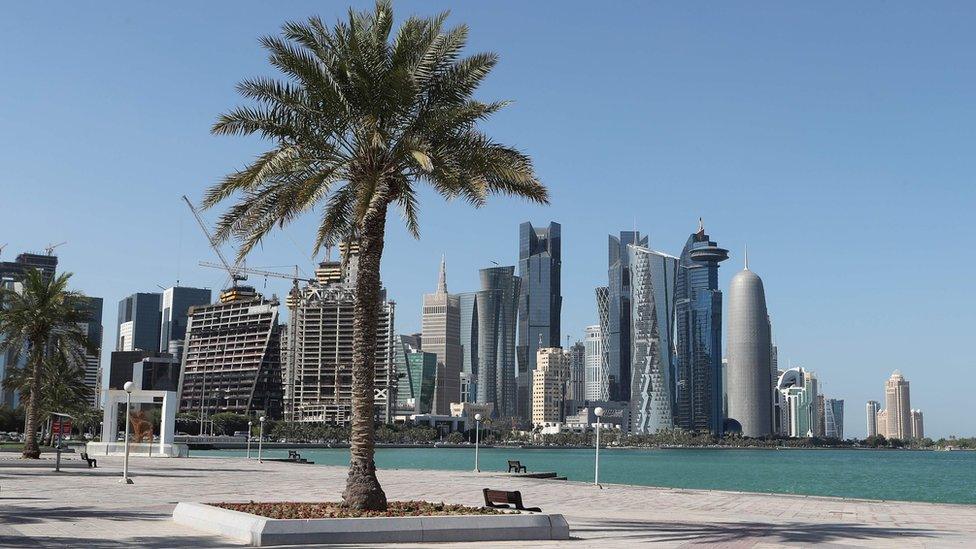Qatar blockade: US urges Gulf states to ease restrictions
- Published
Tillerson: Ease blockade of Qatar
US Secretary of State Rex Tillerson says Gulf countries must ease the blockade on Qatar, which is accused by Arab neighbours of funding terrorism.
Saudi Arabia, the United Arab Emirates (UAE), Egypt and Bahrain cut travel and diplomatic ties with Qatar on Monday.
Mr Tillerson said the blockade was having humanitarian consequences.
But while praising Qatar's emir for working to limit the funding of terror groups, Mr Tillerson said more needed to be done.
Meanwhile US President Donald Trump has accused Qatar of funding terrorism, and urged it to stop.
"I decided with Rex Tillerson that the time had come to call on Qatar to end funding and extremist ideology in terms of funding," he said.
"Stop teaching people to kill other people... We want you back among the unity of nations."
The Qataris deny accusations that they support Islamist extremists.

Same message, different emphases: Analysis by Barbara Plett-Usher, BBC State Department correspondent
President Trump had previously tweeted support for the move to isolate Qatar over its alleged financing of extremist groups.
He repeated that message forcefully from the podium, despite US efforts to defuse the crisis: he even claimed to have been part of the decision made by Saudi Arabia and others.
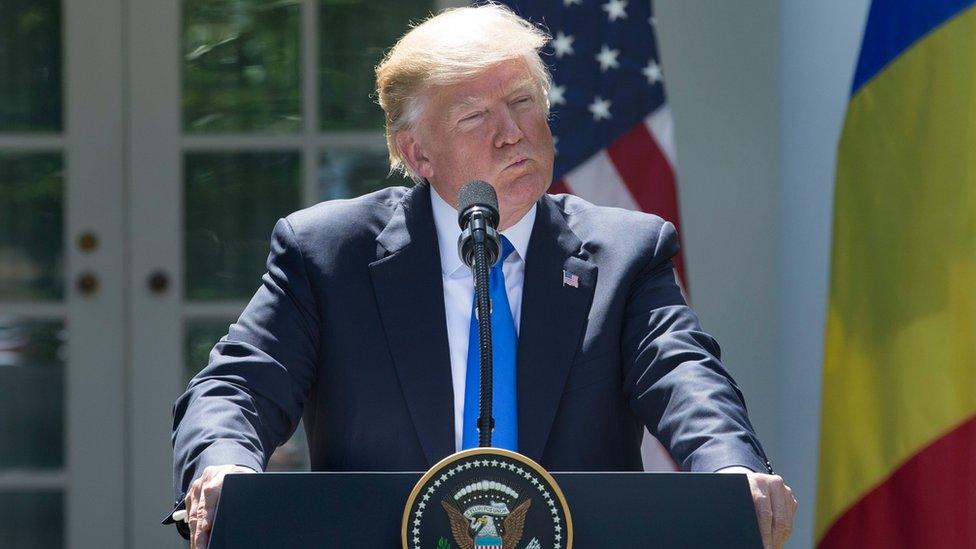
US President Donald Trump has accused Qatar of funding terrorism, and urged it to stop
Indeed, his tone and approach undercut that of Secretary Tillerson, who barely an hour earlier had delivered a more nuanced appeal for de-escalation, making clear he expected all parties to end the crisis.
While Tillerson said Qatar must respond to its neighbours' concerns, he also urged the others to take action against extremists within their borders.
US officials insisted the two men were sending the same message with different emphases, aimed at encouraging their Arab allies to put aside grievances and focus on fighting terrorism.
But it was the differences that resonated: another example, it seemed, of Trump forging a path at variance with that of his top officials.
Notably, while he criticised Qatar, he thanked Saudi Arabia. His embrace of Riyadh on a recent trip there seems to have influenced his thinking, and raised questions about the direction of any US mediation.

On Monday, the tiny, oil- and gas-rich state was cut off and isolated by some of the Arab world's most powerful countries.
Qatari planes were banned from using some of their neighbours' airspace.
The dramatic moves came after years of tension between Qatar and its Gulf neighbours, in particular Saudi Arabia.
'Food shortages'
Bahrain, Saudi Arabia and the UAE gave Qatari nationals two weeks to leave, and banned their own citizens from travelling to Qatar.
"There are humanitarian consequences to this blockade," Mr Tillerson said in Washington. "We are seeing shortages of food, families are being forcibly separated and children pulled out of school."
Earlier on Friday, Mr Trump discussed Qatar and the need for Gulf unity with Egyptian President Abdel Fattah al-Sisi.
The economic disruption could have an impact on Qatar if the dispute drags on.
Mr Tillerson said the ongoing row was having an effect on regional co-operation on countering extremism. Qatar is home to the biggest American airbase in the region, with about 10,000 troops.
The US secretary of state added that the blockade was "impairing US and other international business activities in the region" and that the US backed mediation efforts being pursued by Kuwait.
His statement came hours after German Foreign Minister Sigmar Gabriel called for the "sea and air blockades" to be lifted.
In other new developments:
Saudi Arabia and its three allies issued a list of 49 people - including Muslim Brotherhood spiritual leader Yusuf al-Qaradawi - and 12 Qatar-backed charities and groups accused of links with militants
Qatar responded by saying that the list reinforced "baseless allegations"
UAE foreign affairs minister Anwar Gargash said they and their allies were seeking to "straighten an evil that has targeted the region".

Saudi Arabia has said Qatar needs to cut ties with the Palestinian Islamist group Hamas in the Gaza Strip, and the Muslim Brotherhood in Egypt, if it wanted to end its isolation.
On Thursday, Qatar's Sheikh Mohammed said his country had been isolated "because we are successful and progressive" and called his country "a platform for peace not terrorism".
He added: "We are not ready to surrender, and will never be ready to surrender, the independence of our foreign policy."
- Published8 June 2017
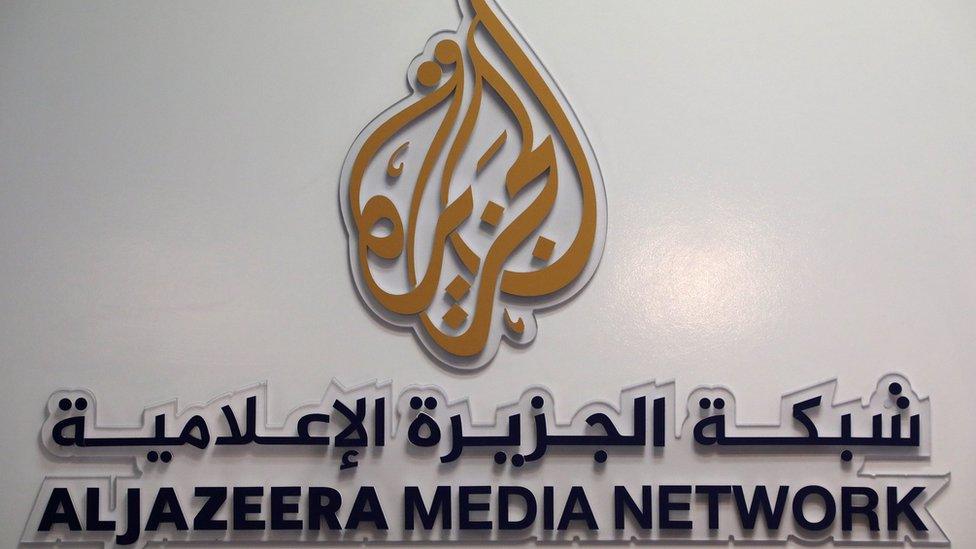
- Published7 June 2017
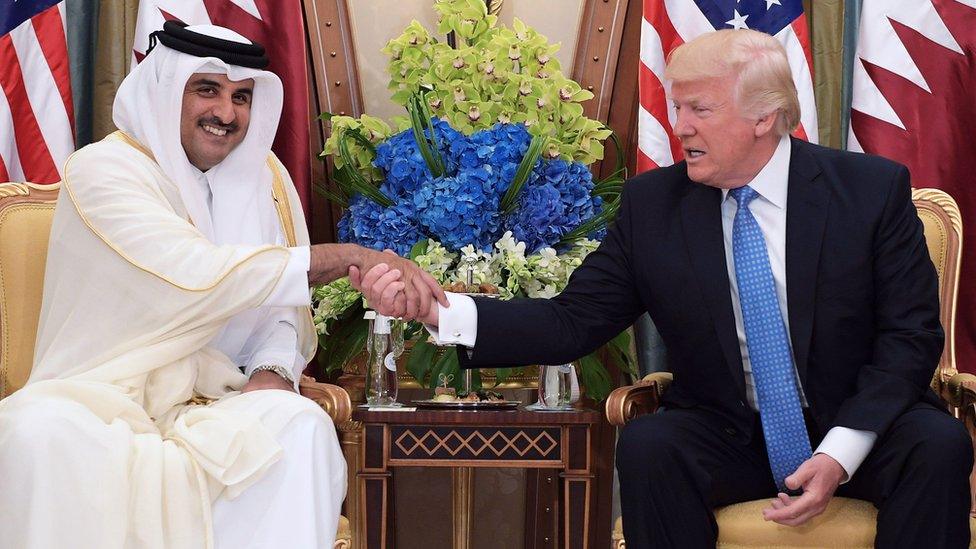
- Published6 June 2017
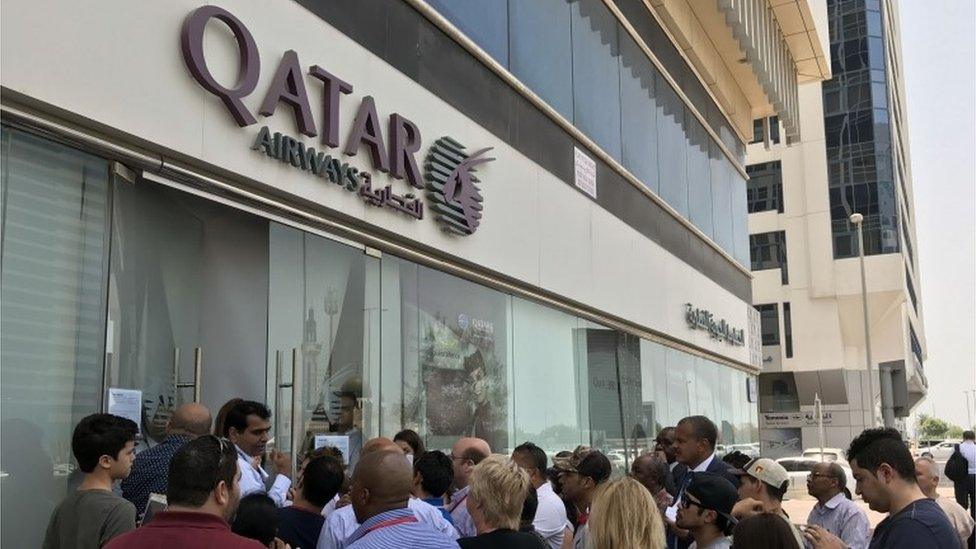
- Published6 June 2017
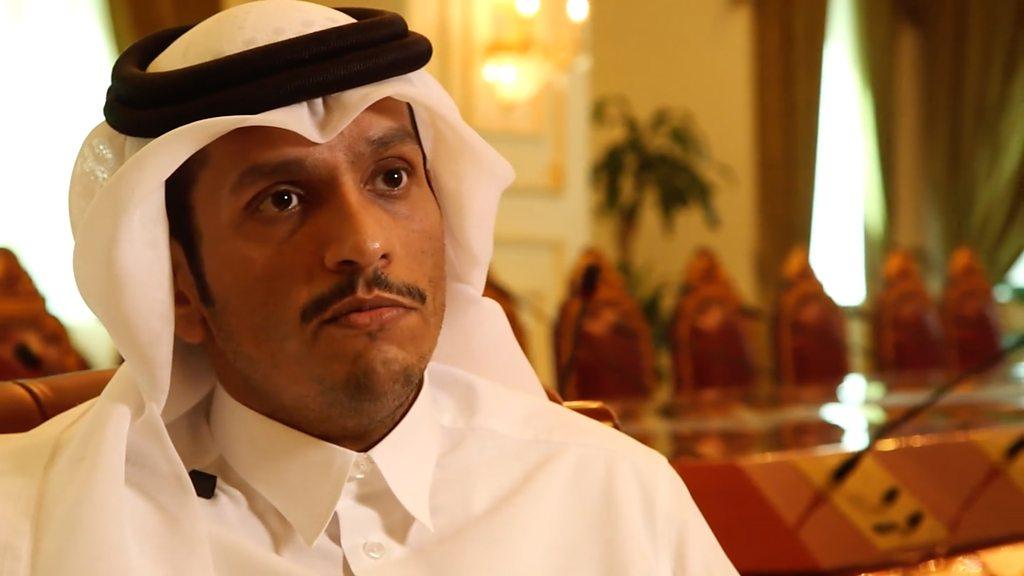
- Published19 July 2017
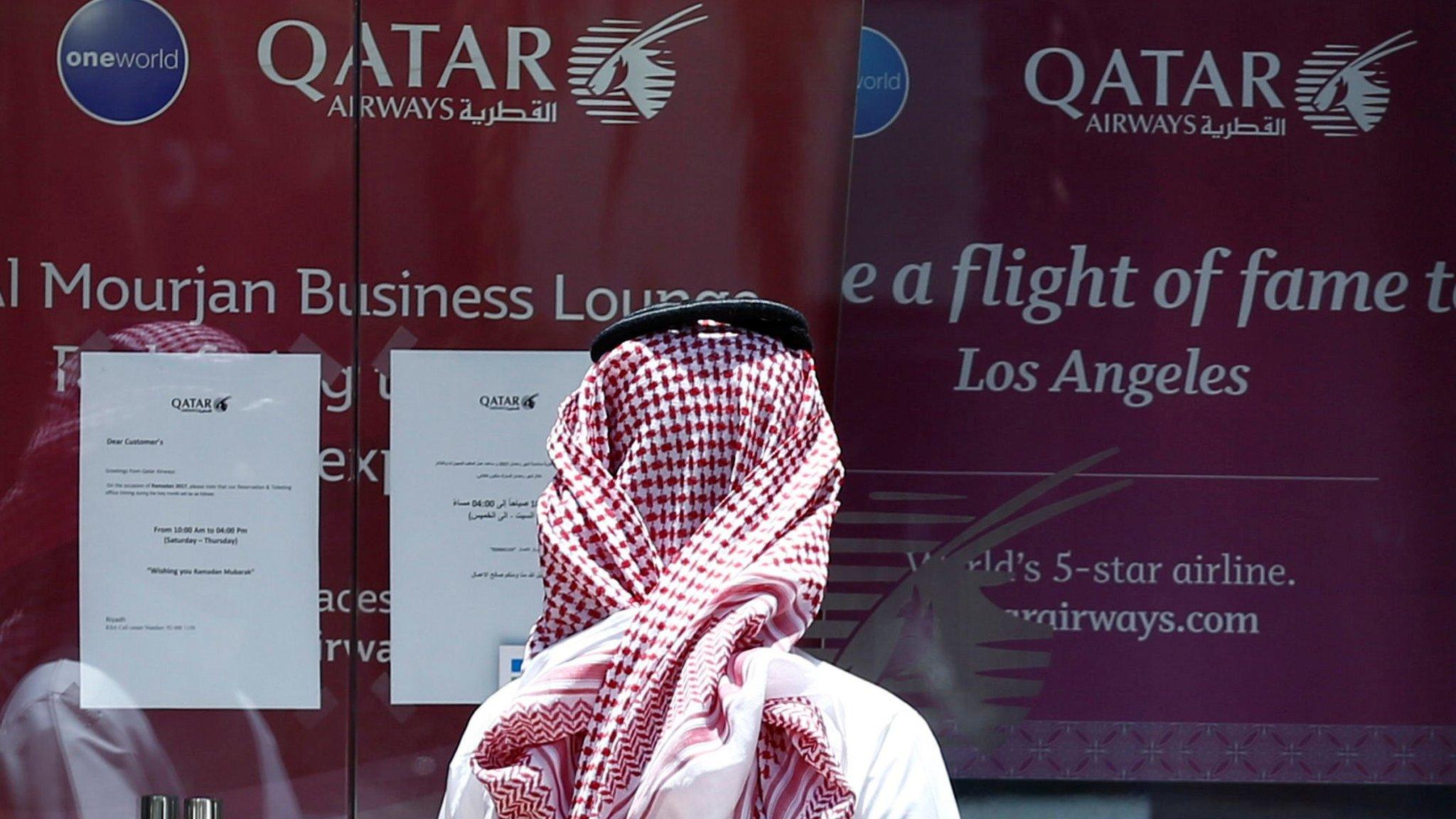
- Published6 June 2017
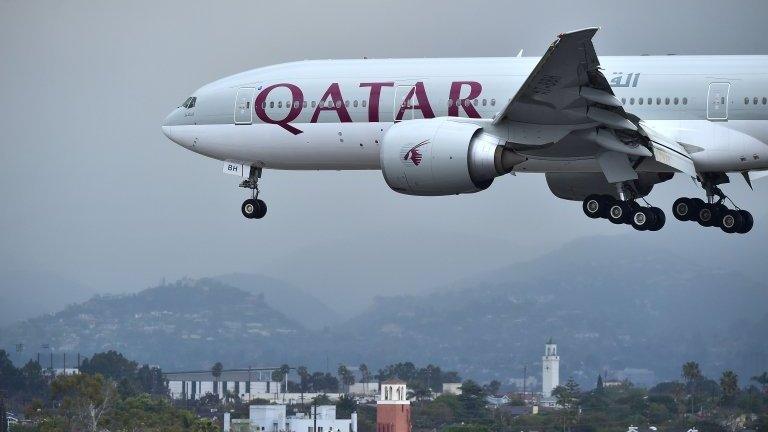
- Published5 June 2017
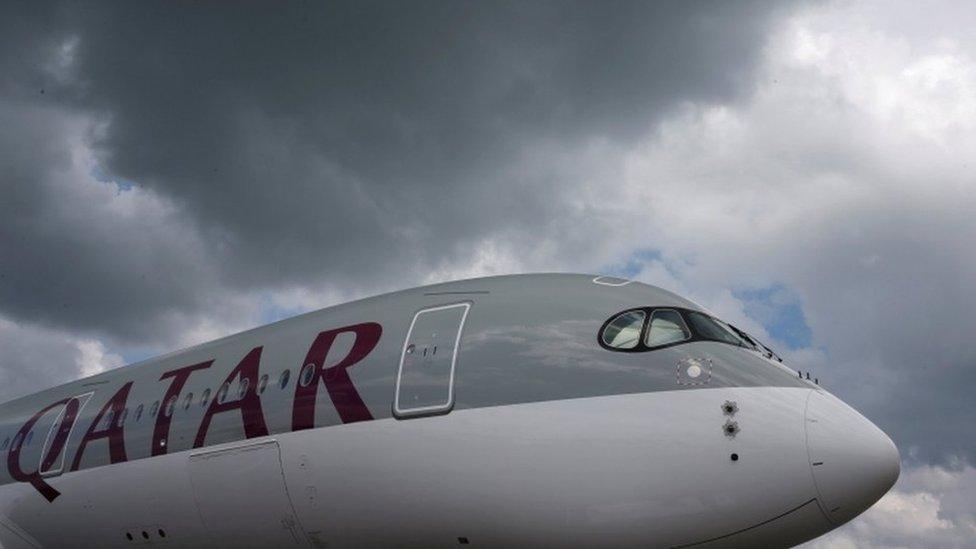
- Published5 June 2017
